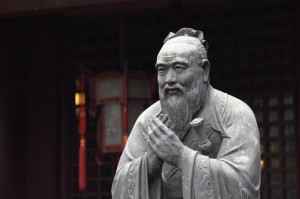 I am often rather disoriented when reading some of the comments about the future of the Euro. Firstly because a lot of people seem to want the Euro to collapse or even disappear, and secondly for the lack of objectivity. This lack of objectivity is dangerous for anyone who has to lead people, particularly so, if they are not aware of it.
I am often rather disoriented when reading some of the comments about the future of the Euro. Firstly because a lot of people seem to want the Euro to collapse or even disappear, and secondly for the lack of objectivity. This lack of objectivity is dangerous for anyone who has to lead people, particularly so, if they are not aware of it.
To explore our example of the Euro, I am not sure how many people understand just how central the Euro is to the whole architecture of the European Union. If the Euro disappeared then the whole European Union project could collapse. How this could possibly be good for anyone I find difficult to understand. Having myself been born only ten years after the end of the Second World War my world-view has logically been shaped by that momentous global struggle. Steven Spielberg goes so far to say that World War II was essentially a war for the survival of Western Civilization. I myself often stop every now and then to quietly give thanks to all those soldiers who gave their lives so that the rest of us could have peace.
And what a peace it has been. Western Europe after two thousand years of constantly tearing itself apart has enjoyed 60 years of uninterrupted peace and prosperity. The cornerstone of this prosperity is the European Union, a union that has helped the values that lie behind Western Civilization continue to influence the world. Not a bad thing, if you ask me. The EU’s most solid pillar is the Euro. Seen in this light one has to ask; who does it serve to have it collapse?
The discomfort of thought
What is behind this I believe is a lack of objectivity and behind that lie emotional reactions that are not recognized for what they are and therefore not thought through. These emotional reactions are often handed down from generation to generation and become automatic, and therefore escape the rigor of rational analysis. As JFK said, “For the great enemy of truth is very often not the lie–deliberate, contrived and dishonest–but the myth–persistent, persuasive, and unrealistic. Too often we hold fast to the clichés of our forebears. We subject all facts to a prefabricated set of interpretations. We enjoy the comfort of opinion without the discomfort of thought.”
This is precisely what anyone who exercises leadership cannot afford to do. Returning to our example of the European Union, so much criticism of it, especially from English people, for whom I must say I feel a deep affection, is dressed in rational language but is, I believe, mostly emotional in origin, perhaps coming from understandable sense of loss of Empire. The point is these opiones don’t often seem to be not subjected to “the discomfort of thought”. The first step to being objective is sincerely recognizing that you are not being objective. And it is fine not always being objective, however it is important be aware of when your are being objective and when you are not.
Anyone who manages other people would be well served constantly working on their objectivity. The people who you manage will recognize your efforts, will perceive you as being fairer and open to dialogue and the quality of your decisions will exponentially improve.
Some tips to help being objective when exercising leadership
- Be in touch with your feelings, they are the clues to your thoughts.
- Once you recognize the thought, ask if it is really true? What evidence supports it?
- Know your values, what assumptions lie behind them? Are they still valid?
- Know what your “red button” topics are. Work even harder on being objective when you are dealing with these.
- Do all of the above often. Understand that it does not come naturally and is therefore an effort. It is like mental yoga for leaders.
This is a struggle for anyone, I for one find it difficult. But it is an important endeavour and one that will reward you in many different ways.
What ideas do you have for improving objectivity?
 A week ago I, like millions of others, celebrated Roger Federer’s latest achievement. What is it about this tennis player that makes him so popular? He has in fact won the ATP World Tour Fan’s favourite a record nine times straight between 2003 to 2011 and I have little doubt he will win this year’s as well.
A week ago I, like millions of others, celebrated Roger Federer’s latest achievement. What is it about this tennis player that makes him so popular? He has in fact won the ATP World Tour Fan’s favourite a record nine times straight between 2003 to 2011 and I have little doubt he will win this year’s as well.















